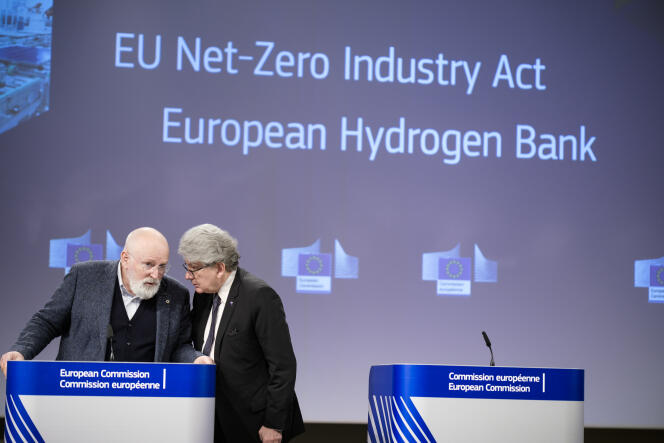
China, the United States and the European Union (EU) have long fought each other over subsidies. Remember the Boeing-Airbus dispute before the World Trade Organization over the illegal public aid paid to the two aircraft manufacturers between 2004 and 2020! But the sequence of the Covid-19 pandemic, which brought the world economy to a standstill, of the shortages of medicines or semiconductors that followed, then of the war in Ukraine, in a world where the double green and digital transition radically changes the game, has accentuated the phenomenon to unprecedented proportions. Today is a real war.
Long before that, in the spring of 2015, Beijing had taken a major step forward with its massive Made in China 2025 aid plan. , economic liberalism and free trade have less and less minus the rating. Hasn’t China shown that state interventionism in technological matters is not doomed to failure and inefficiency? And the virtues of globalization are being questioned.
US President Joe Biden, since being in the White House, has unleashed the heavy artillery, with three successive laws intended to support green industry, semiconductors and infrastructure. The only Inflation Reduction Act (IRA), adopted in August 2022, provides 369 billion dollars (342.21 billion euros) in aid over ten years for companies that develop technologies participating in the ecological transition, and raises fears to the Twenty-Seven of the relocations of companies en masse.
“In reality, analysts think that the amount of aid could be double, because the law does not provide for a ceiling”confides a senior official of the European Commission. “The grants provided for in the IRA are associated with clauses of local content, which amplifies their impact”adds Elvire Fabry, researcher at the Jacques Delors Institute.
On the Old Continent, this offensive by Washington had the effect of an electric shock. She succeeded in convincing the most liberal of the Twenty-Seven that it was necessary to move. The EU, imbued with German ordoliberalism – which keeps the state away from business – has begun a transformation unimaginable three years ago.
It all started with the European recovery plan of 750 billion euros concluded between the Twenty-Seven in July 2020, at the heart of the pandemic. The invasion of Ukraine and the end of the bonanza of cheap Russian gas led them to complete this system in May 2022, with the RePowerEU plan, which directs part of these funds towards the energy transition and increases them at the margin. Then there was the Chips Act, the plan to catch up with Europeans in the semiconductor industry, in April 2023.
You have 84.44% of this article left to read. The following is for subscribers only.



